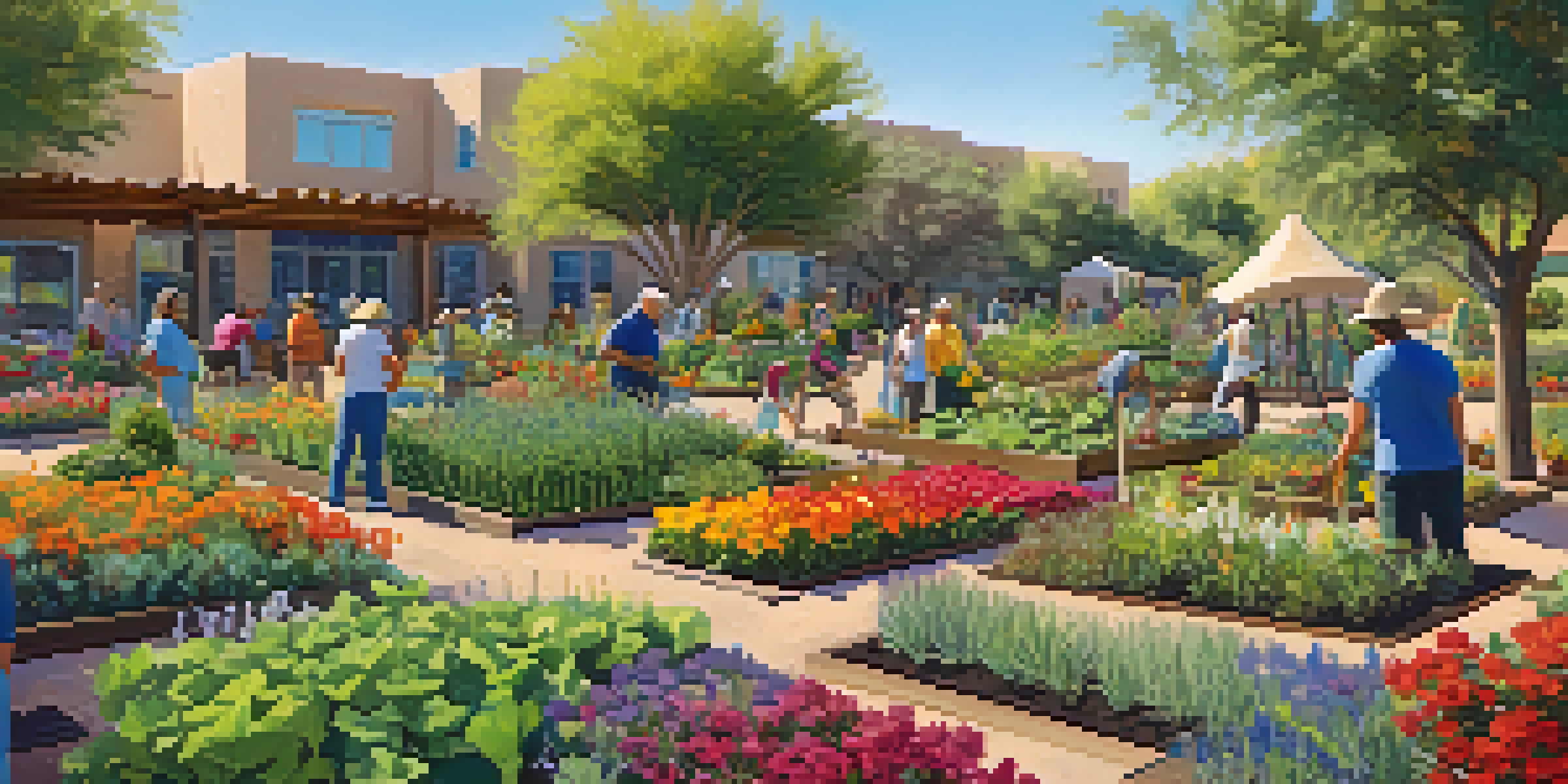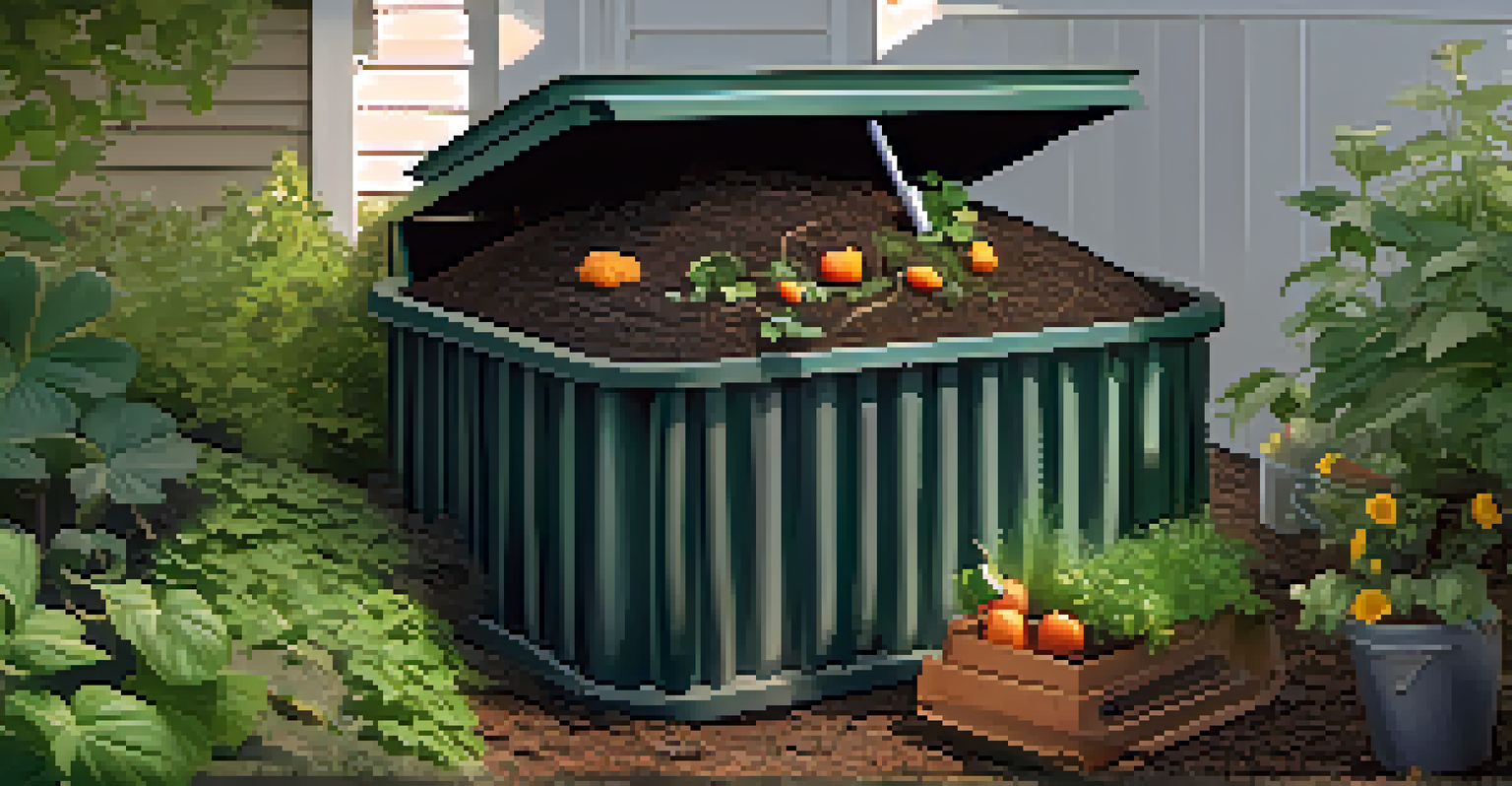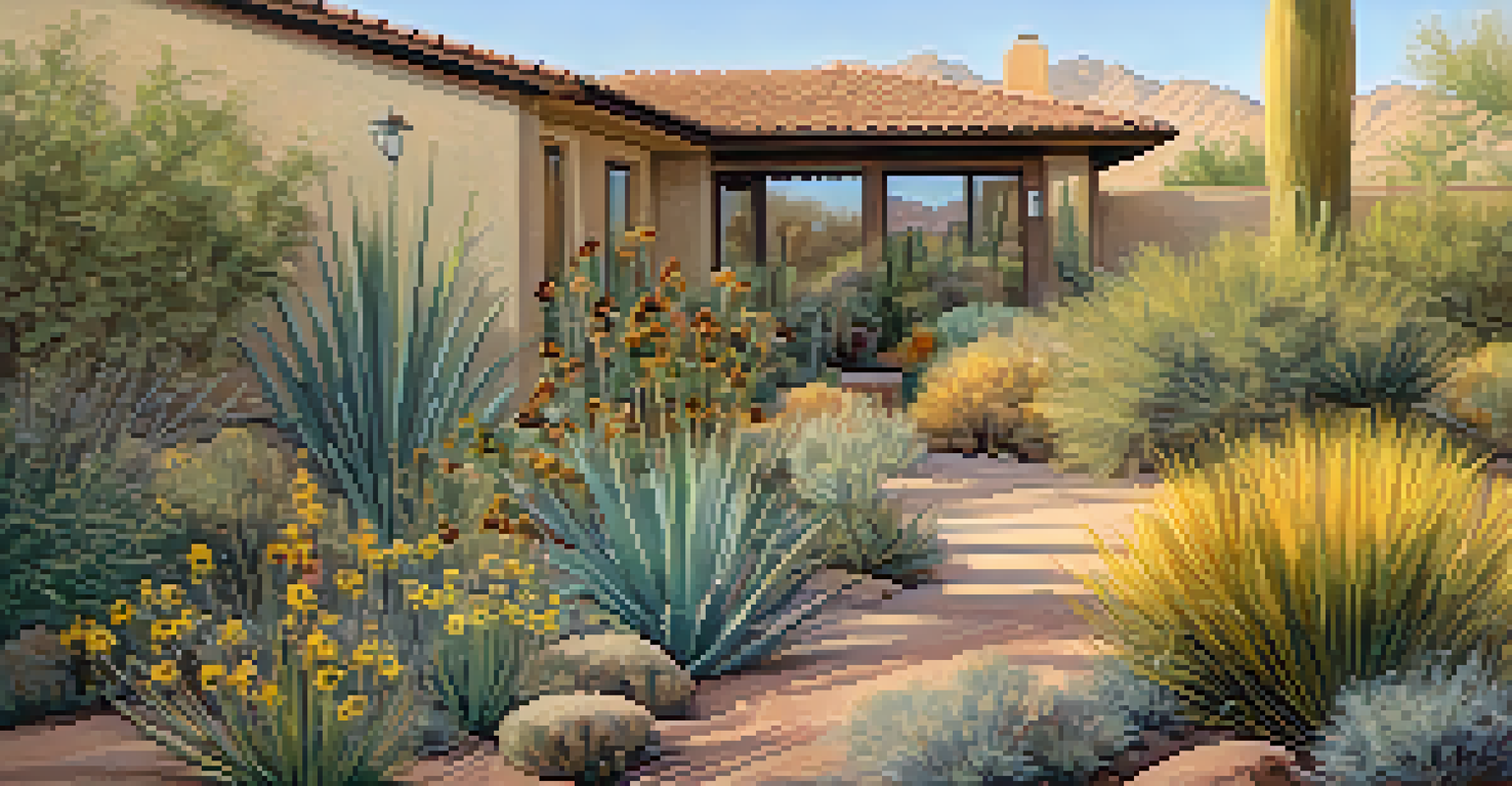Sustainable Practices in Scottsdale's Urban Gardening Initiatives

Understanding Urban Gardening in Scottsdale
Urban gardening refers to the practice of cultivating, processing, and distributing food in and around urban areas. In Scottsdale, this initiative is becoming increasingly popular as residents seek ways to connect with nature and grow their own food. With the desert landscape, urban gardening can seem challenging, but innovative practices are making it possible.
The greatest threat to our planet is the belief that someone else will save it.
Scottsdale’s climate, characterized by hot summers and mild winters, presents unique opportunities for growing a wide range of plants. Community gardens and personal plots are popping up, providing a space for locals to cultivate vegetables, herbs, and flowers. This not only beautifies the city but also promotes self-sufficiency and resilience among residents.
Additionally, urban gardening fosters community engagement, as neighbors often collaborate on gardening projects. These efforts create bonds and encourage knowledge sharing about sustainable practices, which is essential for building a healthier urban ecosystem.
The Role of Community Gardens
Community gardens play a pivotal role in Scottsdale's urban gardening initiatives. They serve as shared spaces where individuals can grow food collectively, promoting a sense of community and stewardship. These gardens often include educational programs to teach sustainable gardening techniques, making them invaluable resources for learning.

In these gardens, participants share not only seeds and plants but also ideas and experiences. This collaborative approach helps residents realize the importance of biodiversity and the benefits of growing native plants. By planting species that thrive in the local environment, gardeners contribute to a more sustainable ecosystem.
Urban Gardening Thrives in Scottsdale
Residents are increasingly engaging in urban gardening, combining nature with food production in the desert landscape.
Moreover, community gardens provide fresh produce to those who may not have access to healthy food options. This is especially crucial in urban areas where food deserts may exist, enabling residents to enjoy nutritious meals while reducing their carbon footprint.
Water Conservation Strategies in Urban Gardening
In Scottsdale, water conservation is a top priority, especially given the region's arid climate. Urban gardeners are employing various strategies to maximize water efficiency while maintaining healthy plants. Techniques such as drip irrigation and rainwater harvesting are becoming common, allowing gardeners to minimize waste.
To plant a garden is to believe in tomorrow.
Drip irrigation systems deliver water directly to the roots of plants, reducing evaporation and runoff. This method not only conserves water but also promotes healthier plant growth by ensuring that moisture reaches where it's needed most. Additionally, rainwater harvesting systems collect and store rainwater for later use, further enhancing sustainability.
By implementing these water-saving practices, Scottsdale's urban gardeners are setting a positive example for others. They demonstrate that it is possible to have lush, productive gardens while being mindful of the precious resources we have, paving the way for a more sustainable future.
Soil Health and Composting Practices
Healthy soil is the foundation of successful urban gardening, and Scottsdale residents are increasingly focusing on soil health. One effective way to improve soil quality is through composting, which involves recycling organic waste into nutrient-rich soil amendments. This practice not only enriches the garden but also reduces landfill waste.
Composting can be as simple as collecting kitchen scraps, yard waste, and other organic materials in a designated bin. Over time, these materials decompose, creating compost that can be mixed into garden beds. This not only enhances soil structure and fertility but also encourages beneficial microorganisms that promote plant health.
Community Gardens Foster Connections
Community gardens serve as vital spaces for collaboration, education, and access to fresh produce, enhancing local resilience.
By embracing composting, urban gardeners in Scottsdale are taking a significant step towards sustainability. They are not only improving their own gardens but also contributing to a healthier environment by recycling waste and reducing the need for chemical fertilizers.
Utilizing Native Plants for Sustainable Gardening
Incorporating native plants into urban gardens is another sustainable practice gaining traction in Scottsdale. Native plants are well-adapted to the local climate and soil conditions, requiring less water and maintenance than non-native species. This makes them an excellent choice for urban gardening in the desert.
By choosing native plants, gardeners can also support local wildlife, including pollinators like bees and butterflies. These plants provide essential habitats and food sources, helping to maintain biodiversity in urban environments. This interconnectedness highlights how urban gardening can support local ecosystems.
Moreover, native plants often have natural resistance to pests and diseases, reducing the need for chemical interventions. This not only benefits the gardeners but also promotes a healthier environment for everyone in the community.
Educational Programs and Workshops
Education is crucial for the success of sustainable urban gardening practices in Scottsdale. Various organizations and community centers offer workshops and programs to teach residents about gardening techniques, sustainability, and environmental stewardship. These educational initiatives empower individuals to take charge of their own gardening journeys.
Workshops often cover topics such as soil health, pest management, and plant selection, providing valuable insights for both novice and experienced gardeners. By sharing knowledge, these programs foster a sense of community and encourage collaboration among residents. Participants can learn from each other's experiences, creating a supportive environment.
Sustainable Practices Enhance Growth
Techniques like water conservation and composting are being adopted to promote healthier gardens and a more sustainable urban ecosystem.
Furthermore, educational programs often include hands-on activities, allowing participants to put their newfound knowledge into practice. This practical approach not only enhances learning but also builds confidence in gardening skills, ensuring that more residents can contribute to Scottsdale's sustainable gardening efforts.
The Future of Sustainable Urban Gardening in Scottsdale
As Scottsdale continues to embrace sustainable urban gardening, the future looks promising. With increasing awareness of environmental issues, more residents are eager to participate in gardening initiatives that prioritize sustainability. This trend is likely to grow as community support and resources expand.
Innovative technologies, such as vertical gardens and hydroponics, are also making their way into urban gardening practices. These methods allow individuals with limited space to grow food efficiently, further enhancing sustainability in urban settings. The integration of such technologies will likely attract a diverse range of gardeners, from beginners to experts.

Ultimately, the future of urban gardening in Scottsdale will depend on the collective efforts of the community. By continuing to promote sustainable practices, share knowledge, and support one another, residents can create a thriving urban gardening culture that benefits both people and the planet.